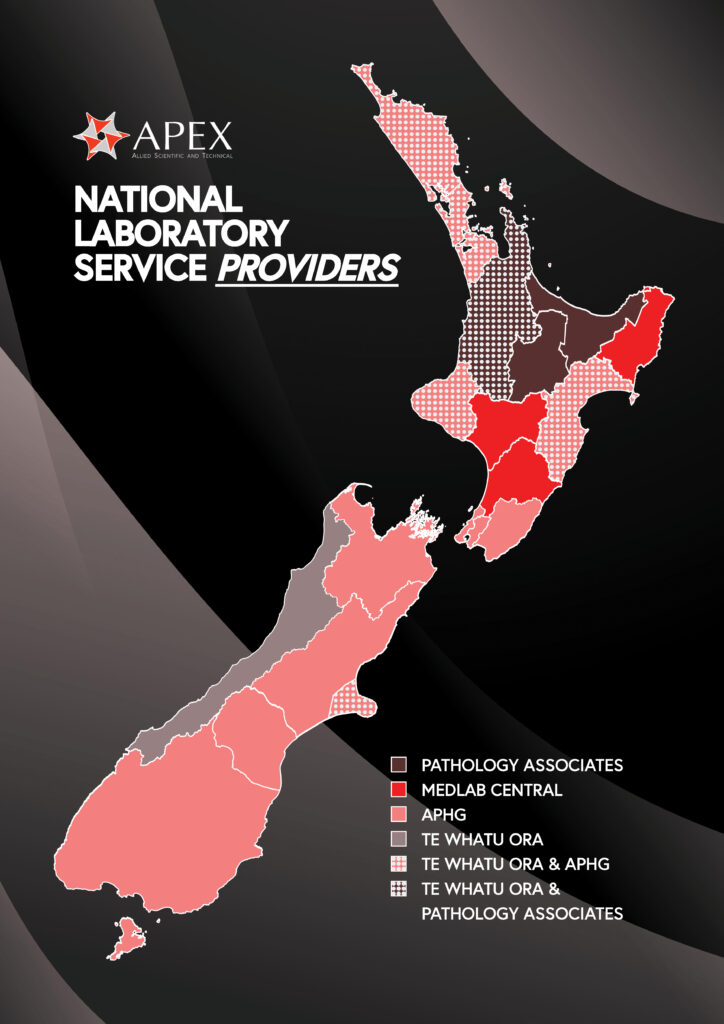Medical Laboratory Workers - Delegates:
| Name | Location | Employer |
|---|---|---|
| Stewart Smith | Canterbury | Canterbury |
| Grant Moore | Canterbury | Canterbury |
| Mark Lewis | Canterbury | Canterbury |
| Melissa Bloxham | Canterbury | Canterbury |
| Shelley Knyn | Palmerston North | Medlab |
| Bryan Raill | Middlemore | Counties Manukau |
| Bernard Chambers | Middlemore | Counties Manukau |
| Karina Verdia | Middlemore | Counties Manukau |
| Linda Keat | Middlemore | Counties Manukau |
| Kavita Laxman | Middlemore | Counties Manukau |
| Michelle Masters | Hawke's Bay | Hawke's Bay |
| Casey Lowe | Rotorua | Pathlab Lakes |
| Karen King | Rotorua | Pathlab Lakes |
| Elizabeth Jones | Whangarei | Northland |
| Michael Herring | Kaitaia | Northland |
| Jane Bailey | Whangarei | Northland |
| Maqhawe Ndlovu | Whangarei | Northland |
| Janine Soufflot | Northland | Northland Pathology |
| Charlotte Vanhecke | Christchurch | New Zealand Blood Service |
| Harold Barnes | Whakatane | Pathlab Whakatane |
| Natalie Dick | Nelson | SCL Nelson |
| Carol Carruthers | Dunedin | SCL |
| Christine Hills | Dunedin | SCL |
| Grant Cook | Timaru | SCL Timaru |
| Adrian Joshi | Wairau | SCL Wairau |
| Rachel Roth | Wellington | SCL Wellington |
| Glen Kuzman | Taranaki | Taranaki |
| Wendy Wakeling | Waikato | Waikato |
| Lynn Brott | Waitemata | Waitemata |
| Clair Crossley | Taranaki | Taranaki |
| Elaine Bellerby | Christchurch | Canterbury |
| Hollie Beall | Waikato | Waikato |
| Joy Milburn | Nelson | SCL |
| Julia Armstrong | Taranaki | Taranaki |
| Rodney Smith | Christchurch | Canterbury |
| Sharmake Ibrahim | Whangarei | Northland |
| Cara Scott | Canterbury | SCL |
| Wendy Jewell | Canterbury | SCL |
| Teresa Tamplin | Middlemore | Counties Manukau |
| Lakshmi Razdan | Middlemore | Counties Manukau |
| Melissa Huizer | Whakatane | Pathlab Whakatane |
| Delys Cram | Whakatane | Pathlab Whakatane |
| Marguerite Firth | Rotorua | Pathlab Lakes |
| Karen Saunders | Whangārei | Northland Pathology |
| Leah Pringle | Dunedin | SCL |
| Gavin Thomas | Palmerston North | Medlab |
| Sean Adrian | Palmerston North | Medlab |
| Liz Sutherland | Gisborne | Tlab |
| Robyn Vercoe | Dunedin | SCL |
| Diane Taylor-Leigh | Dunedin | SCL |
| Stef Murison | Waikato | Pathlab Waikato |
| Valentina Leon | Waikato | Pathlab Waikato |
| Jessica Were | Waikato | Pathlab Waikato |
| Chanel Schippers | Tauranga | Pathlab BOP |
| Jessica Hunt | Tauranga | Pathlab BOP |
| Peter Robson | Tauranga | Pathlab BOP |
| Kathryn Row | Waikato | Pathlab Waikato |
| Emma Daly | Waikato | Pathlab Waikato |
| Alice Gee | Waikato | Pathlab Waikato |
| Wendelina Sinclair | Waikato | Pathlab Waikato |
| Ajesh Joseph | Waikato | Waikato |
| Ben Hunter | Taranaki | Taranaki |
| Yohana Stella | Christchurch | New Zealand Blood Service |
| Jade Bensemann | Wellington | SCL Wellington |
| Jackie Milford | Dunedin | SCL Dunedin |
| Elaine Wilson | Wellington | SCL Wellington |
| Samantha Goodwin | Auckland | SCL |
| Anna McHardy | Taupō | Pathlab Lakes |
| Paige Van Der Hagen | Taranaki | Taranaki Pathology |
| Rory Merrie | Dunedin | SCL Dunedin |

